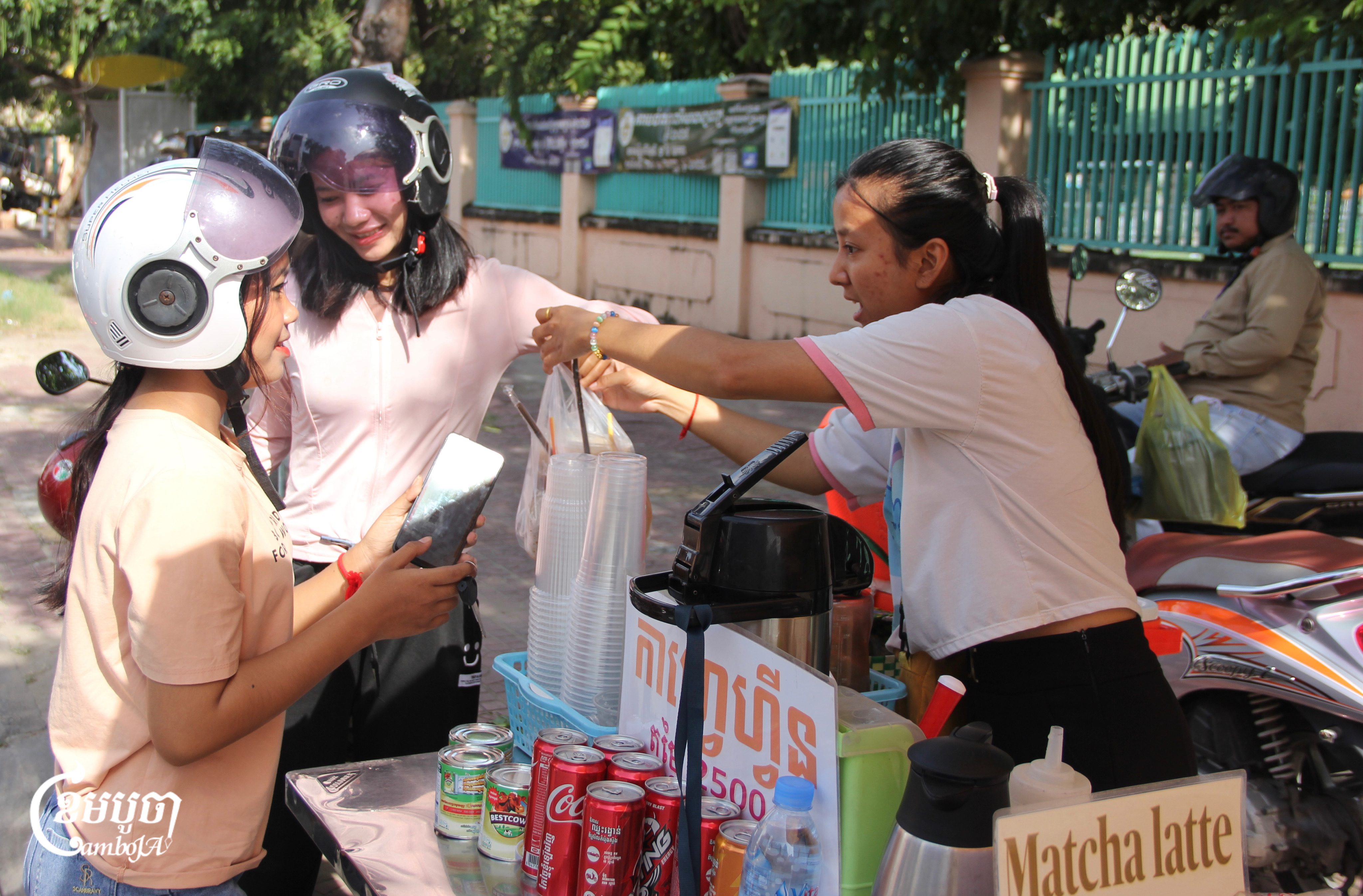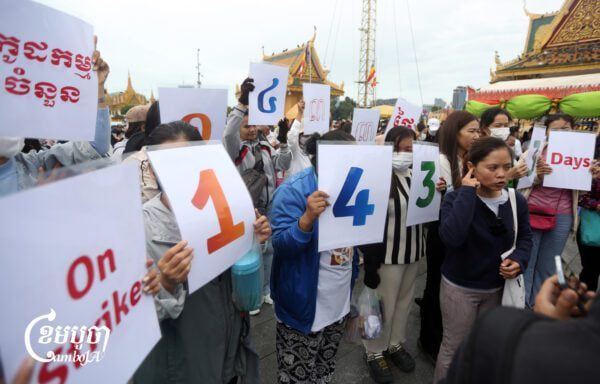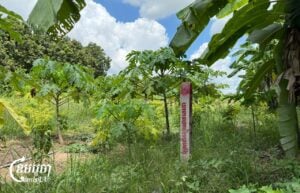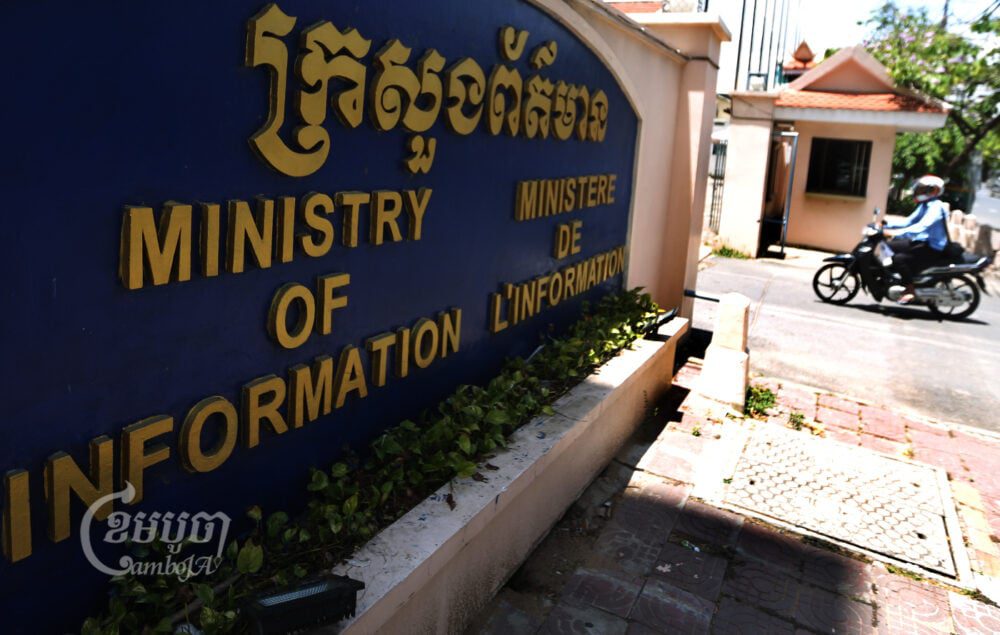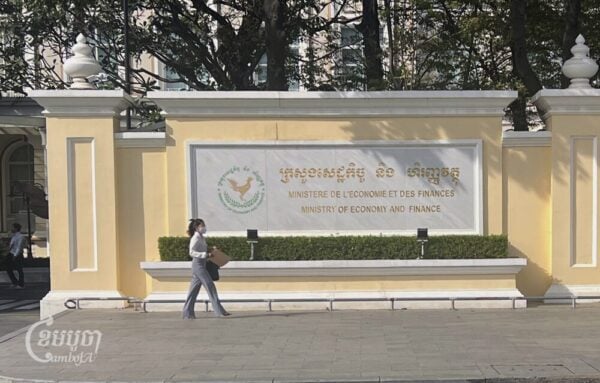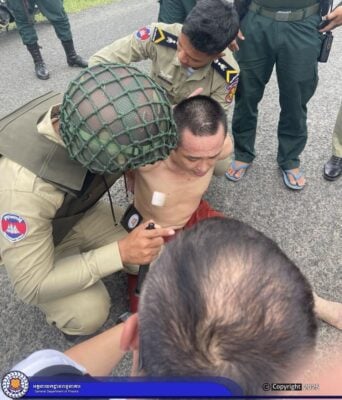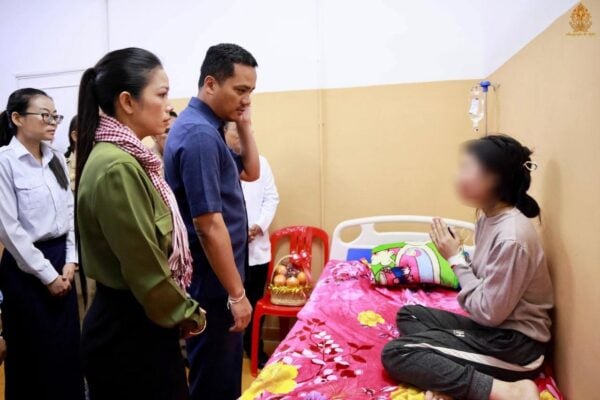Listen to the audio version of this article (generated by AI).
As the youngest daughter in her family, Chan Sophavy has a “greater opportunity” than her two older brothers to attain a university education. But, she still took the time to start a business to sell goods on the street to earn an income to support her studies and gain experience to develop business skills.
A fourth-year accounting student at ACLEDA University of Business, Sophavy does not consider sitting and selling on the street as something shameful. On the contrary, she views it as a good opportunity to gain not only profit but also experience to secure better employment after graduation. Other students are also employing this method as a bridge to success.
From Monday to Thursday, Sophavy wakes up at dawn to help her mother cook food and prepare items for sale. She sets up on the sidewalk in front of Chea Sim Samaky High School between 7 a.m. and 2 p.m. The remaining time is dedicated to her studies, as she is nearing the completion of her bachelor’s degree.
The 24-year-old acknowledged that doing business while studying can be challenging, but emphasized that it depends on time management and setting personal goals, such as gaining new experience in addition to classroom knowledge.
Sophavy, who spoke softly, said, “Selling on the street can be difficult because I sell packed rice, Fin coffee, green tea, and other beverages, but it’s a job I enjoy. I’ve only been open for over three months, but it’s going fairly well. In a day, I can earn a profit of 50,000 to 60,000 riel, which helps to cover part of my study expenses.”
Her annual school expenses exceed $1,000, which are covered by her parents and siblings, who also do business. In particular, her eldest brother, Chan Muniroth, has been running a similar business for a long time. By doing her own business, Sophavy wants to experience something different.
“In fact, my family can support my studies without me having to worry, but by selling things, I want to be able to earn to reduce the burden on them. I especially want to gain new experience because in the future I want to open my own business. So, we should know new ways of doing it,” she said.
Muniroth, Sophavy’s first brother, said he and his second brother only studied up to the 12th grade because his family’s situation was difficult during that time.
Currently, Muniroth sells coffee on the street and has a team which runs a service offering coffee and beverages at events. He said he earns a “decent income” to cover his expenses. However, Muniroth wants his youngest sister to pursue her education to a higher level to acquire more skills.
“Success does not depend on the level of education; it depends on our mindset as a foundation. But in every generation, education is seen as the most important because the more education we receive, the greater our minds will become,” said the 28-year-old Muniroth.
Yin Meidaraghita, a first-year accounting student at CamEd Institute, is also running her own business to pay for her tuition fees, which cost $5,000 to $6,000 per year. Although her parents can afford to send her to a more “expensive” school, the 19-year-old does not want her family to carry the whole burden.
Meidaraghita decided to rent a house near Samnong 12 Market where she opened a shop called “ShengDanXue”, which sells coffee, milk tea, juice, sundae, tea, and latte, in April 2025.
“I’ve noticed that many businesses are opening in this sector, especially in Phnom Penh, with most of them being foreign franchises. However, I decided to create my own brand. The total investment for this shop was around $15,000.”
Despite being young and having limited business experience, with support from her family (her parents being business owners), Meidaraghita has been able to operate the business well, earning considerable income. She has now opened a second and third branch and sold the “ShengDanXue” brand franchise to two more outlets.
The first-year accounting student said she currently earns around $1,000 per branch, which helps her cover 50% of her tuition. However, she said, in about a year, she will be able to fully cover her tuition herself and have the capacity to earn income for other expenses.
Meidaraghita opined that Khmer students should “dare” to start business. Although studying and running a business is difficult, it depends on clear time management, as starting a business also contributes to one’s studies.

Sophal Muny is another business owner who started her business after her bachelor’s degree too. She continues to sell coffee, which she and her family have been making since 2021, and has opened a new business, Coffee Catering, which can be booked for events. They provide the “Silver package of 250 cups, Gold package of 500 cups, and Silver package of 350 cups”, according to the needs of the guests.
Mony said that she has loved the idea of starting a coffee business since high school. “After finishing high school, I wanted to open a shop immediately but the main goal was to get my bachelor’s degree because we can gain knowledge to quickly penetrate the market.”
Mony asserted that starting a business is complex and risks failure if not managed well and without competitive skills in the market, as some people open shops and then close due to this.
“Selling coffee from then to now is ongoing, but the biggest challenge is that there are many coffee sellers. There is an impact, but we can rely on our standards. The market looks at taste and direct management, which has allowed us to keep our customers even though we raised the price from 5,000 to 7,000 riel per cup,” she said.
She encouraged business people to be creative and sell as much as possible to earn an additional income on top of the old business.
Before starting this business, Sophal Mony worked with the Cambodian Youth Federation Union since passing the baccalaureate, but Mony quit this job to pursue other work after completing her bachelor’s degree. All the jobs gave her experience in business management.
“If we don’t learn and gain from all that, in five to 10 years, others will be far ahead. That’s why I had to complete my bachelor’s degree, even though my mother told me to stop studying and start a business after grade 12.”
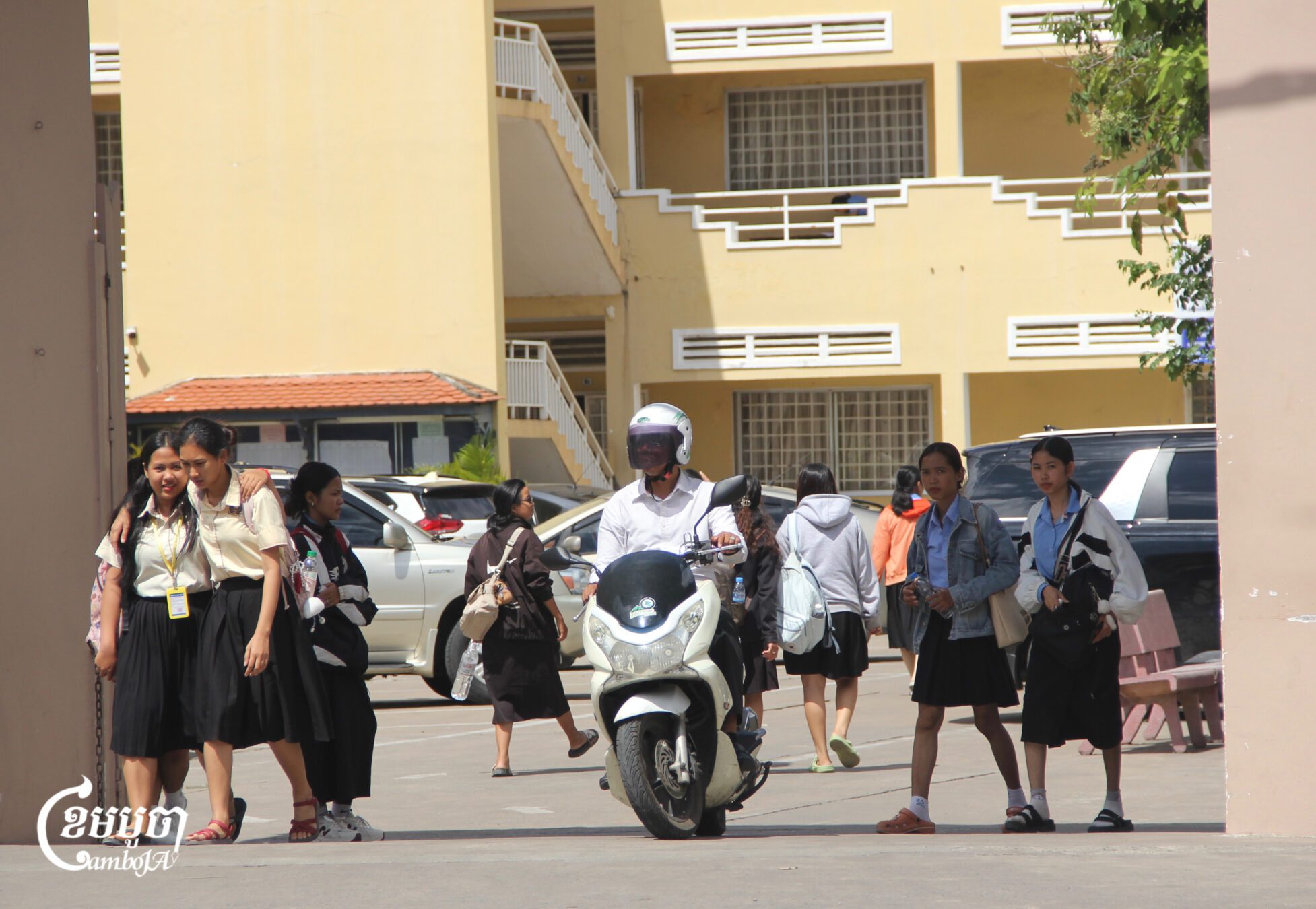
Sun Mesa, spokesperson for the Labor and Vocational Training Ministry, expressed admiration for youths, students, and citizens who start their own businesses based on their abilities. He said this is a vibrant activity of the informal economy in Cambodia.
Starting a business within the informal economy aligns with the “1.5 million” policy—the implementation of vocational and technical training programs for 1.5 million youths under the ministry, launched in November 2024. The program provides opportunities for citizens, especially poor youths from provinces, to learn short skills to support their living or work as specialists in chosen fields.
“Learning skills and going out to work—for our youths, as well as students who are studying, is an activity that the Ministry of Labor applauds, and this is also what the Royal Government wants, that every Cambodian citizen must have at least one skill,” said Mesa.
Vorn Pao, President of the Independent Democracy of Informal Economic Association, said there are many students in Phnom Penh, especially those from the provinces, who have difficulty supporting their studies. They have opened businesses selling coffee or taking up jobs as tuk-tuk drivers and delivery workers, to support their studies.
In developed countries, students mostly focus on studying but in developing and poor countries, they allocate time to earn money to pay for education. “This is what some Cambodian students are doing. It may affect their studies but also provide a good experience.”
“Generally, studying requires sufficient time for learning and researching documents, but due to shortages, they need additional income by starting their own businesses.”
However, he said, this is also a life experience for students. “When they finish studying, they will have capital, practical experience in running this business, which can help them become stronger in creating or expanding larger businesses to support their lives, families, and the national economy. It also prepares them to know the cold, heat, and all kinds of hardships in real life.”

